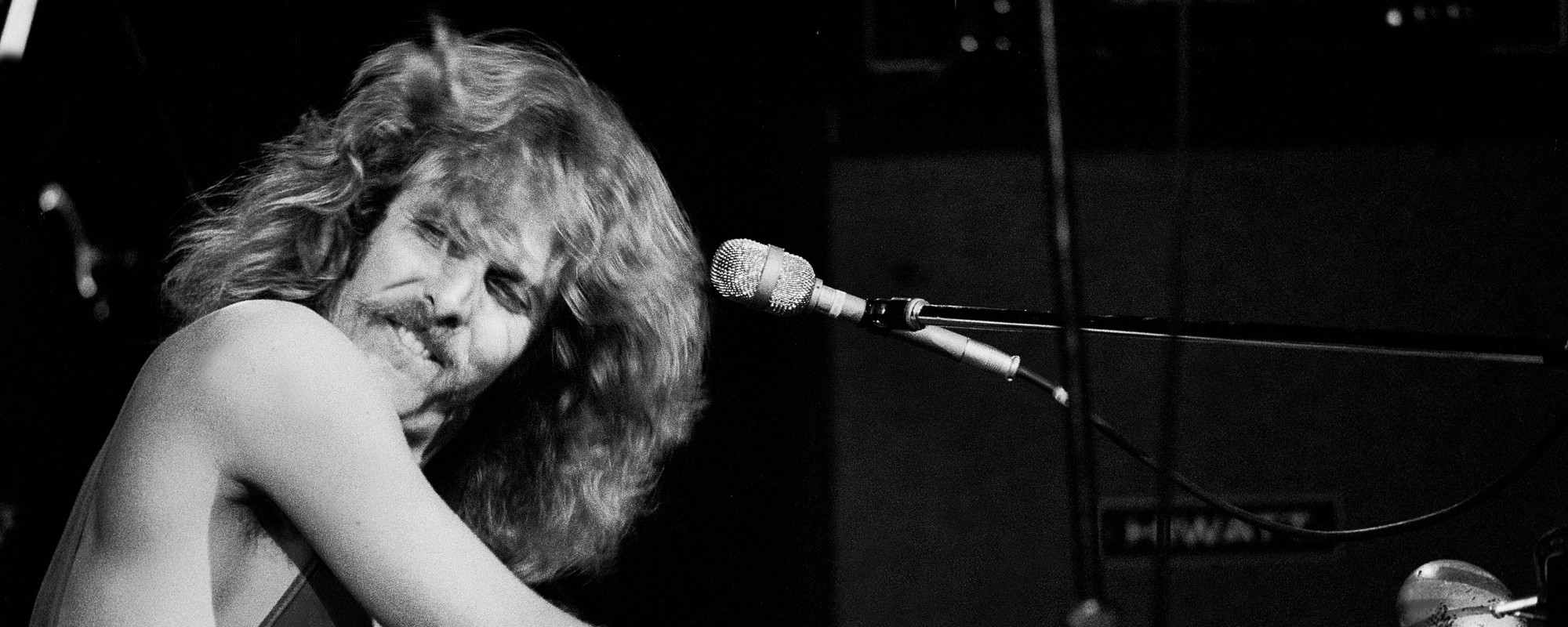“Time Passages” charted higher than any other Al Stewart single in the United States, even higher than “Year of the Cat” (the former was No. 7 in 1978, the latter No. 8 in ’76). It helped the album of the same name become his second straight U.S. Top-10 album as well.
Videos by American Songwriter
Why then has Stewart never quite warmed to his creation? Here is the story of “Time Passages,” a song beloved by yacht rock fans everywhere, but somewhat shunned by the fellow who wrote and sang it.
Stewart’s Unlikely Rise
Al Stewart’s career has been marked by several revelations that helped steer him in the right direction. When he didn’t see himself as a rock star in his formative years, he stumbled into folk music. It was a live performance of Bob Dylan’s “Masters of War” that earned him unexpected applause and helped convince him that folk was his calling.
A few albums into his career, he felt like he’d done all he could with the topic of love. Because he loved history, he decided to write songs about antiquity and historical figures and events. That proved to be a real wheelhouse for him, and helped him earn a loyal cult audience.
By 1975, Stewart had made it to major labels in both the U.S. and his native UK. That’s the same time he was connected with producer Alan Parsons, famous for his engineering work with The Beatles and Pink Floyd, and not too far off from starting his own successful career as an artist. A suggestion from Parsons about an in-progress song in 1976 led to Stewart’s biggest breakthrough and, indirectly, also paved the way for “Time Passages.”
About “Time”
As they laid down the songs for Stewart’s 1976 album, Parsons asked the singer/songwriter if he’d object to saxophone being added to one track. Stewart didn’t think it was the best idea, but Parsons kept pushing and won out, calling Phil Kenzie to the studio to lay down a part. The song that included the sax was “Year of the Cat,” and Stewart was suddenly all over the radio.
For the follow-up album, Arista Records chief Clive Davis prevailed upon Stewart to once again try to concoct a song in the vein of “Year of the Cat,” replete with more saxophone from Kenzie. Stewart obliged with two such songs: “Song on the Radio,” the title of which was a kind of snide response to Davis’ demands for a commercial hit, and “Time Passages,” which was co-written with Peter White (who handled much of the music while Stewart tackled the lyrics) and became the title track and lead single of the record.
Stewart has spoken in interviews about how he felt like “Time Passages” lacked the spark of inspiration that’s evident on “Year of the Cat.” He also didn’t feel at home as a pop star, which is why subsequent albums from him largely steered clear of that direction. Nonetheless, “Time Passages” has held up quite well over the years as an example of a thoughtful song that asks as many questions as it answers.
What is the Meaning of “Time Passages”?
“Time Passages” seems to suggest that those who spend too much of their days thinking about the quirks of time are actually wasting what little of it there is. In the first verse, the simple transformation of day to night causes the narrator to reflect on a much larger time frame: Years go falling in the fading light.
Stewart muses on how cruel time can be to what matters most: The things you lean on are the things that don’t last. When you lose them, you can’t help but futilely try to call them back: There’s something back there that you left behind. He also suggests lessons are as elusive as time itself: Don’t know why you should feel / That there’s something to learn.
In the final verse, time begins to skew reality, as a chance encounter with an old flame isn’t at all what it seems: You reach out your hand / But you’re all alone, in these / Time passages.
Al Stewart might have written “Time Passages” on command to recapture a musical feeling. But his song has evoked wistful feelings in listeners like only the most inspired music can do.
When you purchase through links on our site, we may earn an affiliate commission.
Photo by Ian Dickson/Shutterstock













Leave a Reply
Only members can comment. Become a member. Already a member? Log in.